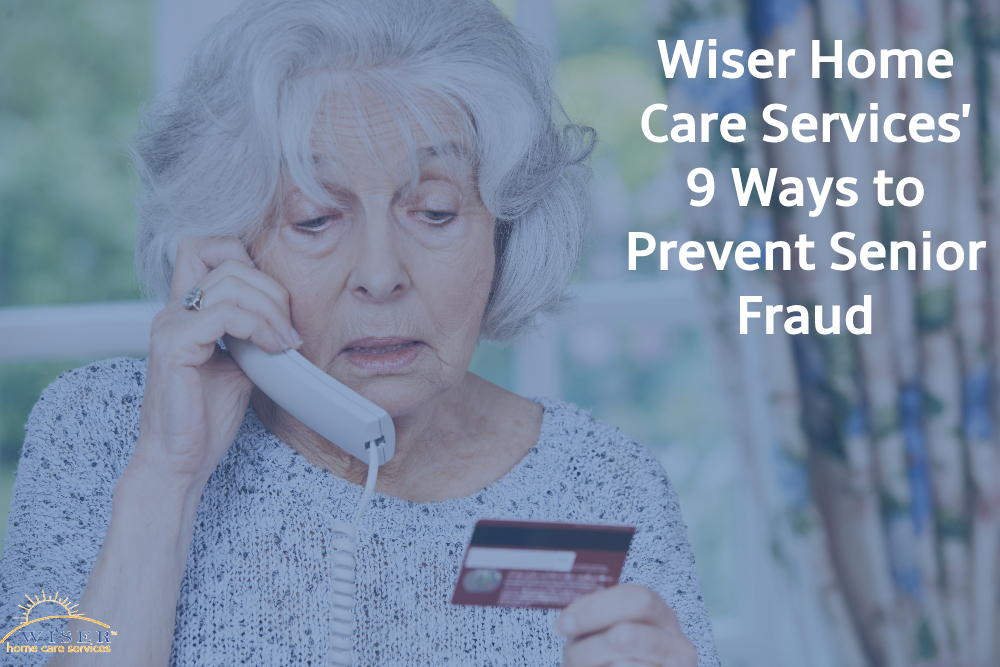Whether it’s their trusting personalities, openness to help those in need, or general lack of knowledge surrounding scams, our senior loved ones often make the perfect targets for scammers looking to make a quick buck.
In fact, AARP reports that analysts estimate elderly fraud losses range from $2.9 billion to $36.5 billion annually. Furthermore, a recent study conducted by the US Consumer Financial Protection Bureau found the average loss for an older American exploited by fraudsters is $34,200.
Fraud is not only financially damaging; it can also create significant emotional distress. Which is why the Association of Certified Fraud Examiners established International Fraud Week in 2000.
The goal of this annual week-long campaign is to raise awareness about fraud through encouraging the public to proactively take steps to minimize the impact of fraud by promoting anti-fraud tips and education.
Considering November is host to National Fraud Awareness Week, we decided to pitch into the effort to raise awareness and dedicate this week’s blog to discussing the 9 ways you can help your senior avoid being a victim of financial fraud.
Sharing is NOT Caring
Unless your senior called a company directly, they should avoid sharing personal information over the phone. Many scams will prey on the unsuspecting by posing as banks, creditors, or even federal agents then ask the target for information such as bank accounts or social security numbers.
Don’t Buy on the Spot
Many door-to-door or cold call solicitors will use a sense of urgency to rush a sale and push someone into making a hasty, on-the-spot decision. Unless it is a known friend or neighbor kid selling stuff from school, your senior should avoid buying stuff on-the-spot. It can be especially dangerous if they require them to write down credit card information on a sales form. If they are interested in the service or product for sale, your senior should request written information about the deal as well as Name, Phone, Email, and Business License Numbers of the solicitor.
The Proof is in the Fine Print
Your senior should be very wary if they are asked by salesmen to sign any sort of document. We recommend that they read it very carefully before signing anything. If it seems fishy, they should ask a lawyer to review it.
Shred It
In some instances, fraudsters will patrol trash cans to see if they can find any sort of useful information to steal identities or make a quick buck. Your senior should invest in a paper shredder so that they can destroy any documents with credit card numbers or personal information. If they don’t have the funds for a shredder at the moment, many local banks will hold shred days for free.
Use Direct Deposit
Mail theft occurs frequently and can have devastating effects for elderly. If your senior receives any sort of pension or benefit checks, they should opt for direct bank deposit instead of receiving checks in the mail. They should also invest in a locked mailbox or even better, a PO box.
Be Wary of Healthcare Fraud
Since many seniors utilize Medicare benefits for healthcare expenses there are a lot of scams that revolve around Medicare. They usually involve fraudulent billing practices or promises of free medical equipment in exchange for the senior’s Medicare number. This is a bait-and-switch so the fraudster can capitalize on Medicare Fraud.
Leave Your Politeness at the Door
Many scammers target the elderly because they are often too polite to hang up or make them leave. We say, forget politeness and protect yourself from fraud. Let your senior know that it can be in their best interest to hang up or force them to leave before the pitch is over.
Watch Out for the Sucker List
You know those too-good-to-be-true vacation sweepstakes or free iPad giveaways? These sweepstakes target vulnerable people with the allure of winning something extravagant for the simple transaction of their contact information. 9.9 times out of 10 your senior WON’T win a thing, and their information will be put on a “sucker list” for future scams and solicitations.
Stay Educated on Scams
These tips provide a great starting place to keep your senior protected from fraud. However, it is important to stay abreast current scam and fraud trends. As time goes on, fraudsters will continue to change their strategies to keep people off-guard.
As always, if you care for an elderly loved one and would like help developing a care plan of any kind, please feel free to contact us. We can help your family establish a care plan to personally accommodate your loved one’s needs.
Click here to request your free care assessment.

